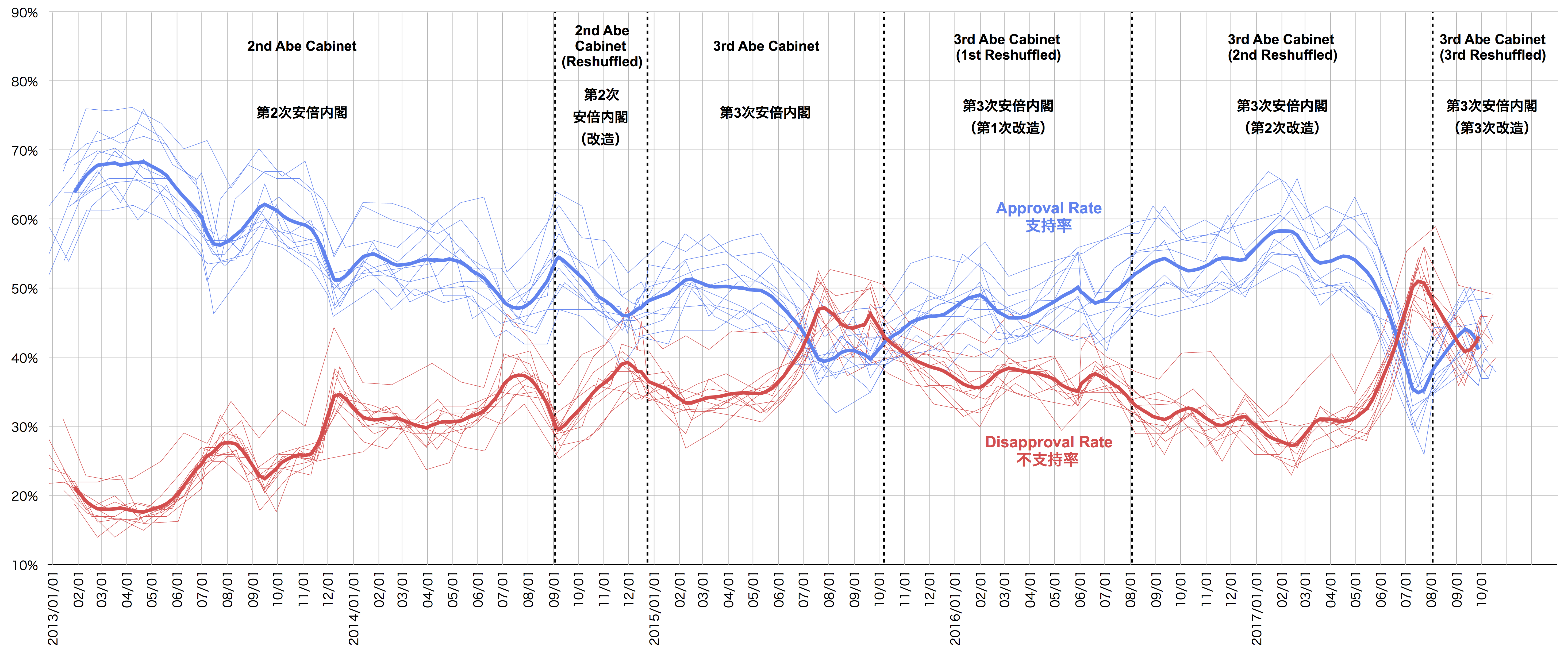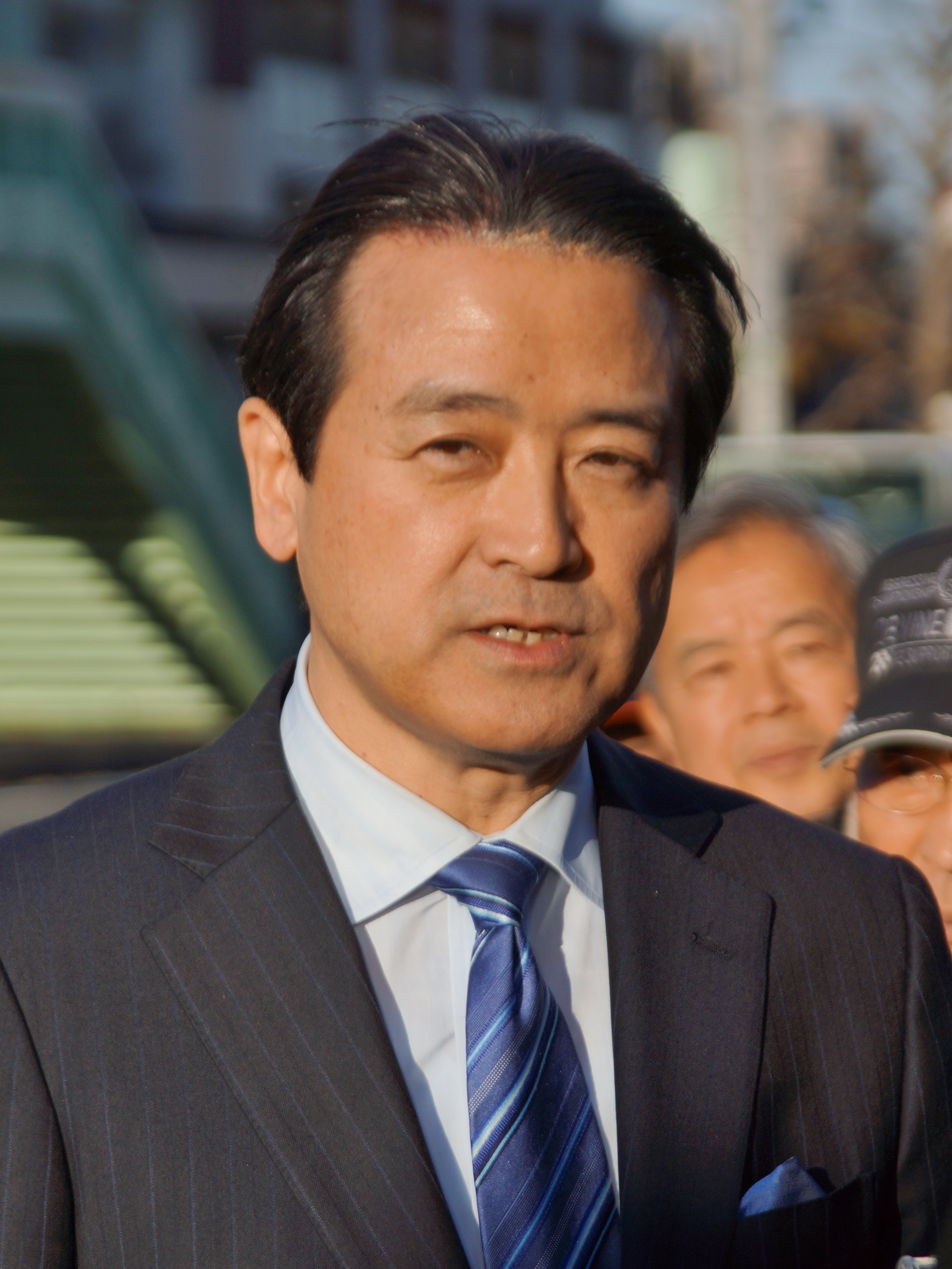|
Kanagawa 8th District
Kanagawa 8th district (''Kanagawa 8-ku'', ńź×ÕźłÕĘØ8Õī║) or more formally the "8th district of Kanagawa Prefecture" (''Kanagawa-ken dai-8-ku'', ńź×ÕźłÕĘØń£īń¼¼8Õī║) is a single-member electoral district for the House of Representatives, the lower house of the National Diet of Japan. It is located in northwestern Yokohama the capital of Kanagawa prefecture. The district covers the wards of Midori and Aoba and after redistricting in 2017, parts of the neighborhoods of ''Eda'' and ''Oomaru'' in Tsuzuki ward. As of 2021, the district had 427,843 eligible voters. Before the 2002 redistricting, i.e. until the 2003 general House of Representatives election, the 8th district consisted of Aoba ward and the Miyamae ward of Kawasaki City is a city in Kanagawa Prefecture, Japan, one of the main cities of Greater Tokyo Area and Keihin Industrial Area. It is the second most populated city in Kanagawa Prefecture after Yokohama, and the eighth most populated city in Japan (includin ..., ... [...More Info...] [...Related Items...] OR: [Wikipedia] [Google] [Baidu] |
Kenji Eda
is a Japanese politician and member of the House of Representatives in the Diet (national legislature). A native of Okayama Prefecture and graduate of the University of Tokyo, he joined the Ministry of International Trade and Industry in 1979, attending the Center for International Affairs at Harvard University in the United States while in the ministry. Leaving the government in 1998, he ran unsuccessfully for the House of Representatives in 2000 as a member of the Liberal Democratic Party. He ran again in 2002 as an independent, and was elected for the first time. He lost his seat in 2003, but was re-elected in 2005. He was a member of Your Party from its foundation in 2009 to 2013. On August 7, 2013, he was demoted from the secretary-general by party leader Yoshimi Watanabe due to disagreements in political policies. He left Your Party on December 9, 2013, along with thirteen other members, and announced the formation of a new party known as the Unity Party. He stated that h ... [...More Info...] [...Related Items...] OR: [Wikipedia] [Google] [Baidu] |
2014 Japanese General Election
General elections were held in Japan on 14 December 2014. Voting took place in all Representatives constituencies of Japan including proportional blocks to elect the members of the House of Representatives, the lower house of the National Diet of Japan. As the cabinet resigns in the first post-election Diet session after a general House of Representatives election (Constitution, Article 70), the lower house election also led to a new election of the prime minister in the Diet, won by incumbent Shinz┼Ź Abe, and the appointment of a new cabinet (with some ministers re-appointed). The voter turnout in this election remains the lowest in Japanese history. Background In 2012, the Democratic Party government under Yoshihiko Noda decided to raise the Japanese consumption tax. This unpopular moved allowed the Liberal Democratic Party under Shinzo Abe to regain control of the Japanese government in the 2012 Japanese general election. Abe proceeded to implement a series of economic ... [...More Info...] [...Related Items...] OR: [Wikipedia] [Google] [Baidu] |
2017 Japanese General Election
General elections were held in Japan on 22 October 2017. Voting took place in all Representatives constituencies of Japan ŌĆō 289 single-member districts and eleven proportional blocks ŌĆō in order to appoint all 465 members (down from 475) of the House of Representatives, the lower house of the then 707-member bicameral National Diet of Japan. Incumbent Prime Minister Shinz┼Ź Abe's governing coalition of the Liberal Democratic Party (LDP) and the Komeito party retained their seats in signs of what was perceived as weak opposition. The PM won his fourth term in office and held on to the two-thirds supermajority in order to implement policies on revising the war-renouncing Article 9 of the Japanese Constitution. The snap elections were called in the midst of the North Korea missile threat and with the largest opposition party, the Democratic Party, in disarray. Just hours before Abe's announcement of the snap election on 25 September, Governor of Tokyo Yuriko Koike launche ... [...More Info...] [...Related Items...] OR: [Wikipedia] [Google] [Baidu] |
Southern Kant┼Ź PR Block
The Southern Kant┼Ź proportional representation block () is one of eleven proportional representation (PR) "blocks", multi-member constituencies for the House of Representatives in the Diet of Japan. It consists of Southern parts of the Kant┼Ź region covering Chiba Chiba may refer to: Places China * (), town in Jianli County, Jingzhou, Hubei Japan * Chiba (city), capital of Chiba Prefecture ** Chiba Station, a train station * Chiba Prefecture, a sub-national jurisdiction in the Greater Tokyo Area on ..., Kanagawa and Yamanashi prefectures. Following the introduction of proportional voting it initially elected 23 representatives in the 1996 general election, then 21 after the total number of PR seats had been reduced from 200 to 180, and 22 representatives since the reapportionment of 2002. Summary of results With a district magnitude of 22, Southern Kant┼Ź is the second largest PR block behind Kinki and gives smaller parties an opportunity to pick up seats. Par ... [...More Info...] [...Related Items...] OR: [Wikipedia] [Google] [Baidu] |
Hidehiro Mitani
was a professional Go player. Biography Miyashita became a 9 dan in 1960. He had many students, including Ishibashi Chinami, Hanawa Yasutoki, Tokimoto Hajime, Kanno Kiyonori, and Miyashita Suzue. Titles & runners-up 1913 births 1976 deaths Japanese Go players {{Japan-Go-bio-stub ... [...More Info...] [...Related Items...] OR: [Wikipedia] [Google] [Baidu] |
2021 Japanese General Election
General elections were held in Japan on 31 October 2021, as required by the constitution. Voting took place in all constituencies in order to elect members to the House of Representatives, the lower house of the National Diet. As the constitution requires the cabinet to resign in the first Diet session after a general election, the elections will also lead to a new election for Prime Minister in the Diet, and the appointment of a new cabinet, although ministers may be re-appointed. The election was the first general election of the Reiwa era. The election followed a tumultuous period in Japanese politics which saw the sudden resignation of Prime Minister Shinzo Abe in 2020 due to health issues and the short premiership of his successor Yoshihide Suga, who stepped down as leader of the ruling Liberal Democratic Party (LDP) after only about a year in office due to poor approval ratings. The period since the previous general election in 2017 also saw the consolidation of mu ... [...More Info...] [...Related Items...] OR: [Wikipedia] [Google] [Baidu] |
Constitutional Democratic Party Of Japan
The (CDP or CDPJ) is a social-liberal political party in Japan. It was founded in October 2017 as a split from the Democratic Party ahead of the 2017 general election. In late 2020, the party was re-founded following a merger with majorities of the Democratic Party for the People and the Social Democratic Party as well as some independent lawmakers. As of 2021, the CDP is considered the primary opposition party in Japan and is the second largest party in the National Diet behind the ruling Liberal Democratic Party. History Formation and 2017 election The party was formed in the run up to the 2017 general election from a split of the centre-left wing of the opposition Democratic Party (DP). Prior to the election on 28 September 2017, the DP House of Representatives caucus dissolved in order for party members to stand as candidates for Tokyo governor Yuriko Koike's Party of Hope or as independents in the upcoming election. The new party was launched on 2 October 201 ... [...More Info...] [...Related Items...] OR: [Wikipedia] [Google] [Baidu] |
Japan Innovation Party
The was a political party in Japan. It was launched on 22 September 2014, following the merger of the Japan Restoration Party headed by T┼Źru Hashimoto, and the Unity Party, led by Kenji Eda. On 27 March 2016 the party merged with the Democratic Party of Japan and Vision of Reform to form the Democratic Party (''Minshint┼Ź''). History When it was founded, the Japan Innovation Party was led by Kenji Eda and Osaka city mayor T┼Źru Hashimoto. Their initial policy positions included constitutional revision, increased local government autonomy, and the phasing out of nuclear power, and the party also signalled a willingness to work with the Liberal Democratic Party and Party for Future Generations on issues where their policies aligned. Soon after forming, however, Hashimoto resigned in December 2014 from his role in order to focus on the Osaka mayoral election scheduled for the spring of 2015, and Eda remained as the sole leader of the party. Following the defeat of the Osaka ... [...More Info...] [...Related Items...] OR: [Wikipedia] [Google] [Baidu] |
Unity Party (Japan)
The was a Japanese political party. History The party was formed in December 2013 by Kenji Eda and 13 other legislators who left Your Party. Your Party initially refused to acknowledge that six councillors had left its caucus in the House of Councillors, but filed a notice in February 2014 which acknowledged their departure from Your Party, allowing the Unity Party to have formal representation in the upper house. The party supported Morihiro Hosokawa in the 2014 Tokyo gubernatorial election. Eda had discussions with the Japan Restoration Party in early 2014 with a view toward coordinating the two parties' policy stances. JRP co-head Shintaro Ishihara rejected the idea of coordinating with the Unity Party on the basis of their support for the Constitution of Japan, while the other JRP co-head Toru Hashimoto saw room for agreement on the scope of necessary revisions to the Constitution. On 21 September 2014, the Unity Party and the Japan Restoration Party merged to form the Ja ... [...More Info...] [...Related Items...] OR: [Wikipedia] [Google] [Baidu] |
Your Party
is a Japanese parliamentary caucus consisting of Yoshimi Watanabe and Takashi Tachibana, later Satoshi Hamada after Tachibana forfeited his seat, in the House of Councillors. It was also a political party led by Watanabe from 2009 until its dissolution in 2014. History Led by Yoshimi Watanabe, who split from the Liberal Democratic Party (LDP), the party was founded on August 8, 2009 after then-Prime Minister Taro Aso dissolved the lower house. One concept behind the party was to make the government more democratic, and to eliminate control of the government by non-elected members established in the bureaucracy. In this respect, Watanabe has repeatedly stated that his position is compatible with the Democratic Party of Japan. Your Party advocated lower taxation, free enterprise, smaller government, and less regulation. The party fielded 13 candidates in the August 2009 general elections. Five of those candidates were elected to the lower house. In the 2010 house of C ... [...More Info...] [...Related Items...] OR: [Wikipedia] [Google] [Baidu] |
Japan New Party
The was a Japanese political party that existed briefly from 1992 to 1994. The party, considered liberal, was founded by Morihiro Hosokawa, a former Diet member and Kumamoto Prefecture governor, who left the Liberal Democratic Party to protest corruption scandals. In 1992, the party elected four members to the House of Councillors, including Hosokawa. Although this was a disappointing result for them, in 1993 they were able to capitalize on voter dissatisfaction with the LDP, electing a total of 35 members (including 3 who joined after the election). Hosokawa became Prime Minister leading a broad coalition, but was soon forced to resign. The party defended the political reformism, rights of consumers and supported decentralization. By 1994, the Japan New Party dissolved, its members flowing into the New Frontier Party (µ¢░ķĆ▓ÕģÜ). List of leaders of JNP Election results House of Representatives House of Councillors See also *Liberalism in Japan * Conservative mainstr ... [...More Info...] [...Related Items...] OR: [Wikipedia] [Google] [Baidu] |



